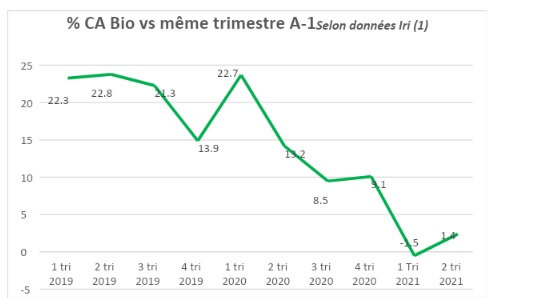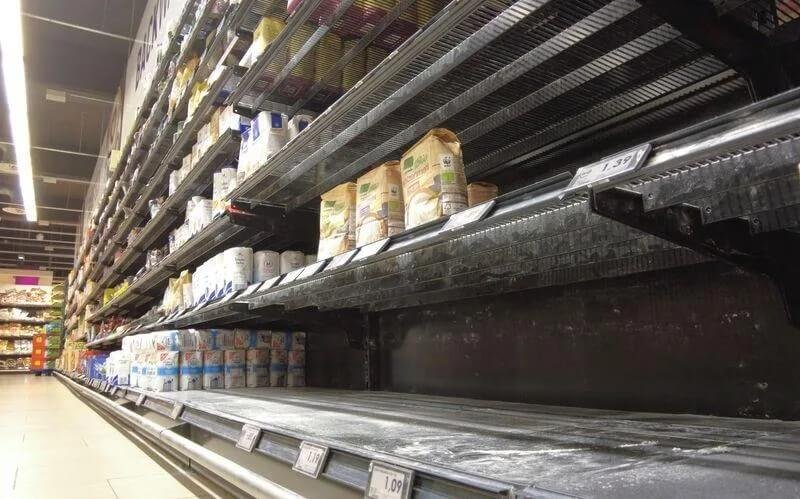The increase in the prices of fuels, gas and foodstuffs has directly impacted the household budget to the point of imposing drastic choices in the priority of purchases. The 2020 covid confinement… left households with some oxygen in their budget to buy organic products, estimated to be 50% more expensive according to Olivier Chaloche, member of the FNAB Board of Directors.
But after confinement, consumer reflexes led housewives to return to large and medium-sized supermarkets, and we are witnessing a collapse in purchases of organic products, as evidenced by the following graph:

Despite the propaganda media hype for organic products, consumers have finally become aware of certain realities. In particular, like conventional agricultural products, they must be protected from diseases and predators.
…
Ecological ideology, aided by a few lobbies who find interest and raison d’être in it, imposes its vision of agriculture on public opinion through media hype, with the majority support of the media, which are also interested in the material to capture the readership. And public opinion, fooled by the repetition of biased or incomplete information that becomes gospel truth, repeats over and over again that organic farming can feed the world and must become the only model.
But all these beautiful intentions cannot erase the reality of things.
[Editor’s note: This article was originally published in French and has been translated and edited for clarity.]































